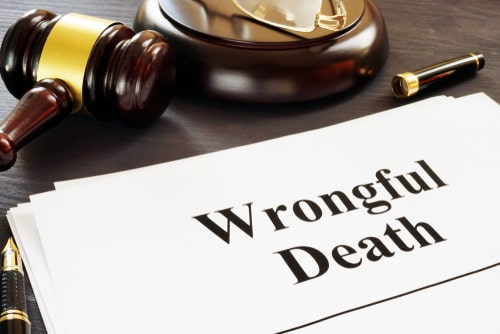What is a Private Autopsy?
Private autopsies can play a critical role in wrongful death or medical malpractice cases or claims. Private autopsies are unique in that they are specially requested postmortem examinations used to determine the cause of death conducted by a pathologist rather than an employee from the coroner’s office. A family member or next of kin can notify the doctor who signs the death certificate, the lead doctor involved in treating the patient prior to death, or the funeral director of the funeral home, that the family will be requesting a private autopsy as this decision must be made promptly and typically before the funeral takes place.
When Are Private Autopsies Necessary?
There are two main reasons a private autopsy would be needed. A private autopsy can help provide information to develop a strong case for either of the following:
Medical Malpractice: If medical malpractice is suspected, a private autopsy can help determine if the death is tied to faulty or negligent medical treatment. Unfortunately, treating doctors and surgeons can make mistakes, so a second look by a private pathologist could become very useful should they find something that was initially missed or confirm a surgical error. The request for a private autopsy can come from hospital risk management officials or from the family of the deceased person.
In some cases where there is definitely a possible malpractice issue, the hospital risk manager will request an autopsy be conducted by a pathology group that may either be owned by the hospital or closely affiliated with the hospital and in this circumstance the family will not be asked to pay for the private autopsy. Family members may be suspicious of a pathology group closely affiliated with the hospital for good reasons. In any case, the family has the absolute right to request a private autopsy by a private pathologist not affiliated with the hospital but the family will be responsible for the cost of the private autopsy. These same factors come into play in cases of medical malpractice/wrongful death claims. These are simply cases where medical malpractice is suspected to be involved in the death of the patient. Other types of wrongful death cases discussed below don’t involve a claim of medical malpractice but a question of whether the death was connected with the injuries suffered by the deceased person in a non-medical malpractice context.
Examples of Medical Malpractice: Imagine a scenario where a nurse administers the wrong number of pills to a patient, causing an accidental overdose. Or where a surgeon did the surgery, but may have cut or lacerated a non-involved artery or vein, or simply caused a leak of bowel contents to seep into the abdominal cavity. All such scenarios can be confirmed or possibly ruled out by private autopsy.
Wrongful Death: A private autopsy may be requested to help support a wrongful death claim. Again, a second opinion may lead to new information or possibly different interpretations, of whether the family member’s death was caused by the traumatic injuries suffered in the underlying accident or not, which can help strengthen the case. If you suspect that someone else’s carelessness has caused the death of a loved one, a private autopsy should be considered if the family believes that the negligent party causing the underlying injuries will claim that the person died from different natural causes or pre-existing conditions and not from the traumatic injuries..
Example of Wrongful Death: If an individual drowns in a pool due to the owner’s failure to properly secure the pool area. Or a person who suffered life threatening injuries when in a car struck by a tractor trailer and then the person dies of complications from a stroke or heart attack. The negligent party might argue the stroke or heart attack was not precipitated by the truck wreck and this is the type of situation which a private autopsy may help resolve.
It is important to note that there are distinct differences between medical malpractice and wrongful death cases. Medical malpractice claims involve issues with healthcare professionals, such as doctors, nurses, or hospital while wrongful death cases can be brought against a negligent party in any other type of situation.
How Do I Obtain a Private Autopsy in Virginia?
Medical Schools: To obtain a private autopsy in the state of Virginia, you can contact the pathology department of one of the following medical schools listed below:
- Eastern Virginia Medical School: 757-446-5620
- Virginia Commonwealth University: 804-828-7284
- University of Virginia: 434-924-5087
- East Carolina University: 252-744-4655 {across the border in North Carolina, but can still be considered by southern residents of Virginia]
Private Service: In addition to medical schools, you can also contact the following private autopsy service:
Virginia Pathology and Autopsy Services: 703-725-7979
Contact a Virginia Medical Malpractice Attorney Today
Always remember that if you are looking to build a case and decide to use the legal services of Shapiro, Washburn & Sharp, we may assist you in arranging a private autopsy if you contact us promptly where arrangements are still possible, and in the right case, we will assist with organizing the autopsy, making the process as straightforward as possible.
There is no substitute for the level of assurance a private autopsy provides in cases of possible medical malpractice or wrongful death. You must have no doubts as you move forward with addressing the death of a loved one. If you feel confused or uncertain about the death of a loved one and suspect it may be a viable wrongful death claim or medical malpractice, contact our law firm to schedule a free case evaluation with one of our dedicated Virginia medical malpractice attorneys.
RELATED CONTENT
- $2.23 Million Wrongful Death/Medical Malpractice Verdict
- Why Request A Private Autopsy?
- Who Can Request A Private Autopsy?
